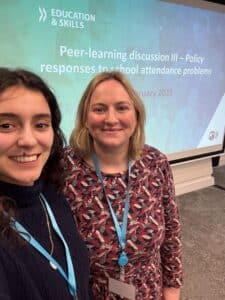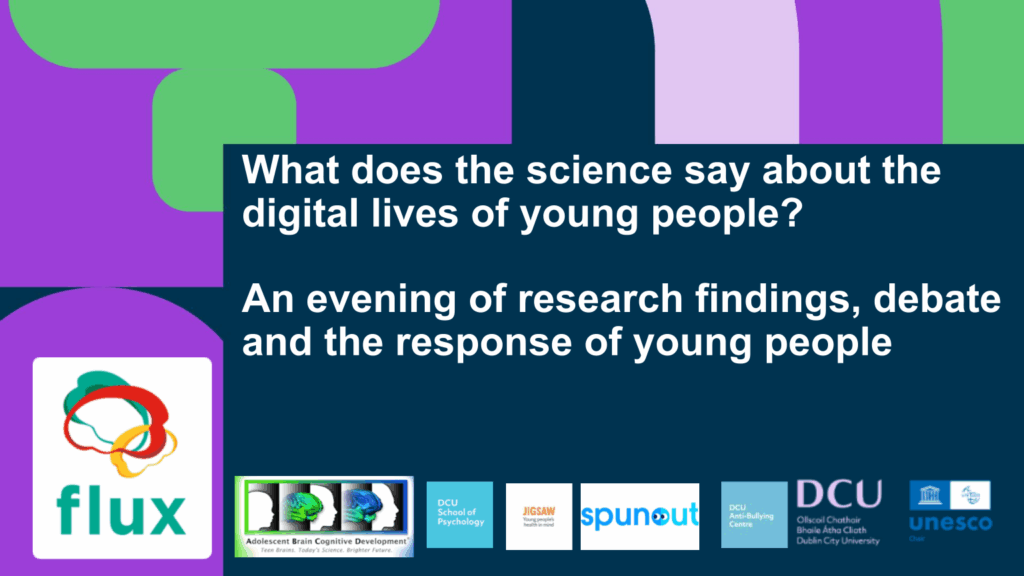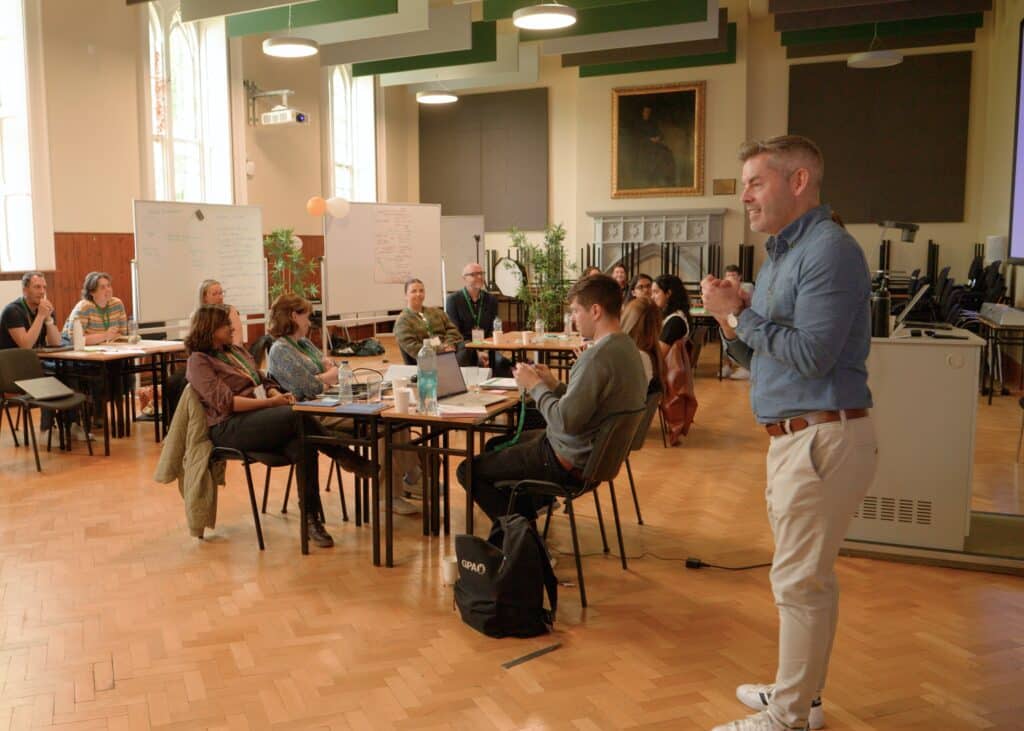On Friday, 7th February, Dr Audrey Bryan, Associate Professor in Sociology at DCU Institute of Education and Senior Research Fellow at the DCU Anti-Bullying Centre, along with MSCA Doctoral Candidate Isabel Machado Da Silva, participated in an OECD peer-learning discussion on Policy Responses to School Attendance Problems. The event, held in Croke Park, Dublin, gathered representatives from Norway, the Slovak Republic, the Republic of Ireland, Northern Ireland, England, and the Netherlands, as well as researchers and practitioners.
Audrey and Isabel’s presentation examined the intersections of (cyber)bullying, school safety, and attendance. Audrey presented national data on bullying, school climate, and attendance trends, shedding light on key patterns. They also discussed theoretical and methodological tensions in existing research, which often overlook the complexity and diversity of young people’s experiences both in school and in digital spaces. The presentation called for new conceptual frameworks that consider broader contextual influences, such as structural racism and economic insecurity, in shaping students’ school experiences and social interactions.
As part of the discussion, Isabel introduced the newly defined UNESCO conceptualisation of bullying, which shifts the perspective from an individual issue to a systemic social process. The updated definition frames bullying as “a damaging social process characterised by an imbalance of power driven by social and institutional norms” (UNESCO, 2024).
Isabel also shared preliminary findings from her ethnographic research in Irish schools as part of the MSCA PARTICIPATE network. Her work highlights the multiple political, social, economic, and structural tensions affecting students’ relationships and school attendance.

Additionally, the presentation addressed the Cineáltas Action Plan on Bullying, raising critical questions about how responsibility for (cyber)bullying is currently framed. The discussion emphasised that schools and families are often expected to bear the primary responsibility for tackling bullying without acknowledging the power imbalances between them. This is particularly relevant in the context of recent school phone bans, which could reshape how responsibility for cyberbullying is understood and influence family-school relationships.
The session concluded with a Q&A, where OECD policy analysts and country representatives engaged in further discussion. Key questions centred on the impact of online gender-based violence on school climate and peer dynamics. In response, Audrey and Isabel stressed the importance of:
- Uncovering the ‘banter’ and seemingly ‘innocent’ everyday interactions that enable bullying and violence to take root.
- Expanding the concept of bystanders to include the role of Big Tech companies in facilitating and profiting from online violence.
Their insights contributed to a broader discussion on the need for systemic policy responses that address both in-school and digital challenges impacting student attendance.



